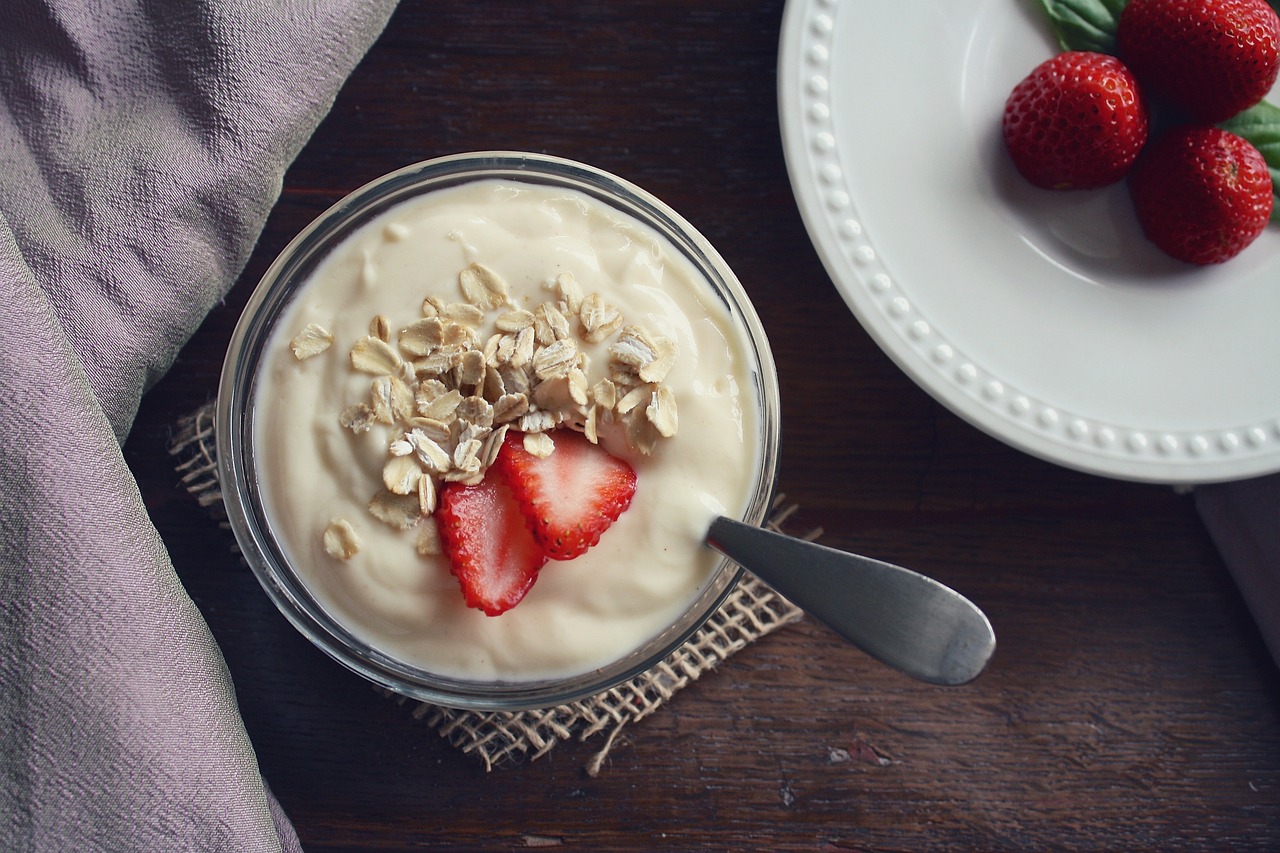Are you a vegetarian or vegan looking to incorporate more plant-based, nutrient-dense foods into your diet? In this article, we will discuss the benefits of nutrient-dense foods and provide a comprehensive list of plant-based options to help you boost your health and well-being.

What are Nutrient Dense Foods?
Nutrient-dense foods are those that are high in nutrients but relatively low in calories. These foods are packed with vitamins, minerals, antioxidants, and other essential nutrients that are vital for overall health and well-being. By incorporating more nutrient-dense foods into your diet, you can improve your energy levels, support your immune system, and maintain a healthy weight.
Why are Nutrient Dense Foods Important for Vegetarians and Vegans?
As a vegetarian or vegan, it is essential to pay extra attention to the nutrient content of your diet. Plant-based diets can be rich in vitamins, minerals, and antioxidants, but they may also lack certain essential nutrients that are more readily available in animal products. By focusing on nutrient-dense foods, you can ensure that you are meeting your body’s needs for optimal health and vitality.
Essential Nutrients for Vegetarians and Vegans
Vegetarians and vegans may need to pay special attention to certain nutrients that are primarily found in animal products. It is important to include a variety of plant-based foods in your diet to ensure that you are getting all the essential nutrients your body needs to function properly.
Protein
Protein is essential for muscle growth, repair, and overall health. While many plant-based foods are high in protein, it is important to include a variety of sources in your diet to ensure that you are getting all the essential amino acids your body needs. Some protein-rich plant-based foods include tofu, tempeh, lentils, chickpeas, quinoa, and nuts and seeds.
Iron
Iron is important for oxygen transport in the body and overall energy levels. Plant-based sources of iron include dark leafy greens like spinach and kale, lentils, beans, quinoa, and fortified cereals. To enhance iron absorption, pair iron-rich foods with vitamin C-rich foods like citrus fruits, bell peppers, or strawberries.
Calcium
Calcium is essential for bone health, muscle function, and nerve transmission. While dairy products are a common source of calcium, there are plenty of plant-based options available. Some calcium-rich foods for vegetarians and vegans include leafy greens like collard greens and bok choy, fortified plant-based milks, tofu, almonds, and sesame seeds.
Vitamin B12
Vitamin B12 is crucial for nerve function, red blood cell production, and DNA synthesis. It is primarily found in animal products, so vegetarians and vegans may need to supplement or rely on fortified foods like plant-based milks, cereals, and nutritional yeast. Make sure to talk to your healthcare provider about your B12 needs and the best way to meet them.
Plant-Based Nutrient Dense Foods
Now that we’ve covered the essential nutrients for vegetarians and vegans, let’s dive into a list of plant-based, nutrient-dense foods that you can incorporate into your diet to support your health and well-being.
Leafy Greens
Leafy greens like spinach, kale, collard greens, and Swiss chard are nutrient powerhouses packed with vitamins, minerals, and antioxidants. These greens are rich in vitamins A, C, K, and minerals like iron, calcium, and magnesium. Try adding them to salads, smoothies, stir-fries, or soups for a nutrient boost.
Berries
Berries like blueberries, strawberries, raspberries, and blackberries are not only delicious but also extremely nutrient-dense. They are high in antioxidants, fiber, vitamins, and minerals that support overall health and well-being. Enjoy them on their own, in smoothies, oatmeal, or as a topping for yogurt or desserts.
Legumes
Legumes like lentils, chickpeas, black beans, and kidney beans are excellent sources of plant-based protein, fiber, and essential nutrients. They are rich in vitamins, minerals, and antioxidants that support heart health, digestion, and blood sugar control. Incorporate legumes into salads, soups, stews, or as a filling for tacos or burritos.
Nuts and Seeds
Nuts and seeds like almonds, walnuts, flaxseeds, chia seeds, and hemp seeds are nutrient-dense foods that are rich in healthy fats, protein, fiber, vitamins, and minerals. They can help support brain health, heart health, and overall well-being. Sprinkle them on salads, yogurt, oatmeal, or blend them into smoothies for added nutrition.
Whole Grains
Whole grains like quinoa, brown rice, oats, farro, and barley are nutrient-dense foods that are high in fiber, vitamins, minerals, and antioxidants. They provide sustained energy, support digestion, and help maintain a healthy weight. Enjoy whole grains as a side dish, in salads, soups, or as a base for stir-fries or grain bowls.
Tofu and Tempeh
Tofu and tempeh are excellent plant-based sources of protein, essential amino acids, iron, calcium, and other nutrients. They are versatile ingredients that can be used in a variety of dishes like stir-fries, curries, soups, salads, or sandwiches. Try marinating and grilling tofu or adding tempeh to stir-fries or Buddha bowls.
Plant-Based Dairy Alternatives
Plant-based dairy alternatives like almond milk, soy milk, oat milk, and coconut yogurt are excellent sources of essential nutrients like calcium, vitamin D, and vitamin B12. They are fortified with essential nutrients to help support bone health, immune function, and overall well-being. Use them in smoothies, cereal, baking, or cooking as a substitute for dairy.
Tips for Incorporating Plant-Based Nutrient Dense Foods
Incorporating more plant-based, nutrient-dense foods into your diet doesn’t have to be complicated. Here are some tips to help you get started on your journey to a healthier, more vibrant you:
Plan Ahead
Take some time to plan your meals and snacks for the week ahead. This can help you make healthier choices and ensure that you have the ingredients you need to create nutrient-dense meals. Prepare some batch-cooked grains, beans, or veggies to have on hand for quick and easy meals throughout the week.
Experiment with New Ingredients
Don’t be afraid to try new fruits, vegetables, grains, and plant-based proteins. Experimenting with different ingredients can help you discover new flavors, textures, and meal ideas that you may enjoy. Visit your local farmers’ market or grocery store to explore seasonal produce and unique ingredients.
Prioritize Whole Foods
Focus on incorporating whole, minimally processed foods into your meals and snacks. Whole foods like fruits, vegetables, whole grains, legumes, nuts, and seeds provide a wealth of essential nutrients and fiber that are important for overall health. Limit your intake of processed foods, sugary beverages, and unhealthy snacks.
Listen to Your Body
Pay attention to how different foods make you feel. Be mindful of your hunger and fullness cues and make choices that honor your body’s needs. If you notice that certain foods are causing digestive discomfort or other symptoms, consider eliminating or reducing them from your diet.
Stay Hydrated
Drink plenty of water throughout the day to stay hydrated and support your body’s essential functions. Water is important for digestion, nutrient absorption, circulation, and overall well-being. Carry a reusable water bottle with you to make it easier to stay hydrated wherever you go.

Final Thoughts
Incorporating plant-based, nutrient-dense foods into your diet can have a profound impact on your health and well-being. By focusing on whole, minimally processed foods like leafy greens, berries, legumes, nuts, seeds, whole grains, tofu, tempeh, and plant-based dairy alternatives, you can ensure that you are getting all the essential nutrients your body needs to thrive as a vegetarian or vegan.
Remember to prioritize variety, balance, and moderation in your diet and listen to your body’s cues to make choices that support your health goals. Take the time to plan ahead, experiment with new ingredients, prioritize whole foods, listen to your body, and stay hydrated to help you on your journey to a healthier, more vibrant you. Your body will thank you for nourishing it with nutrient-dense plant-based foods that support your overall health and well-being.







